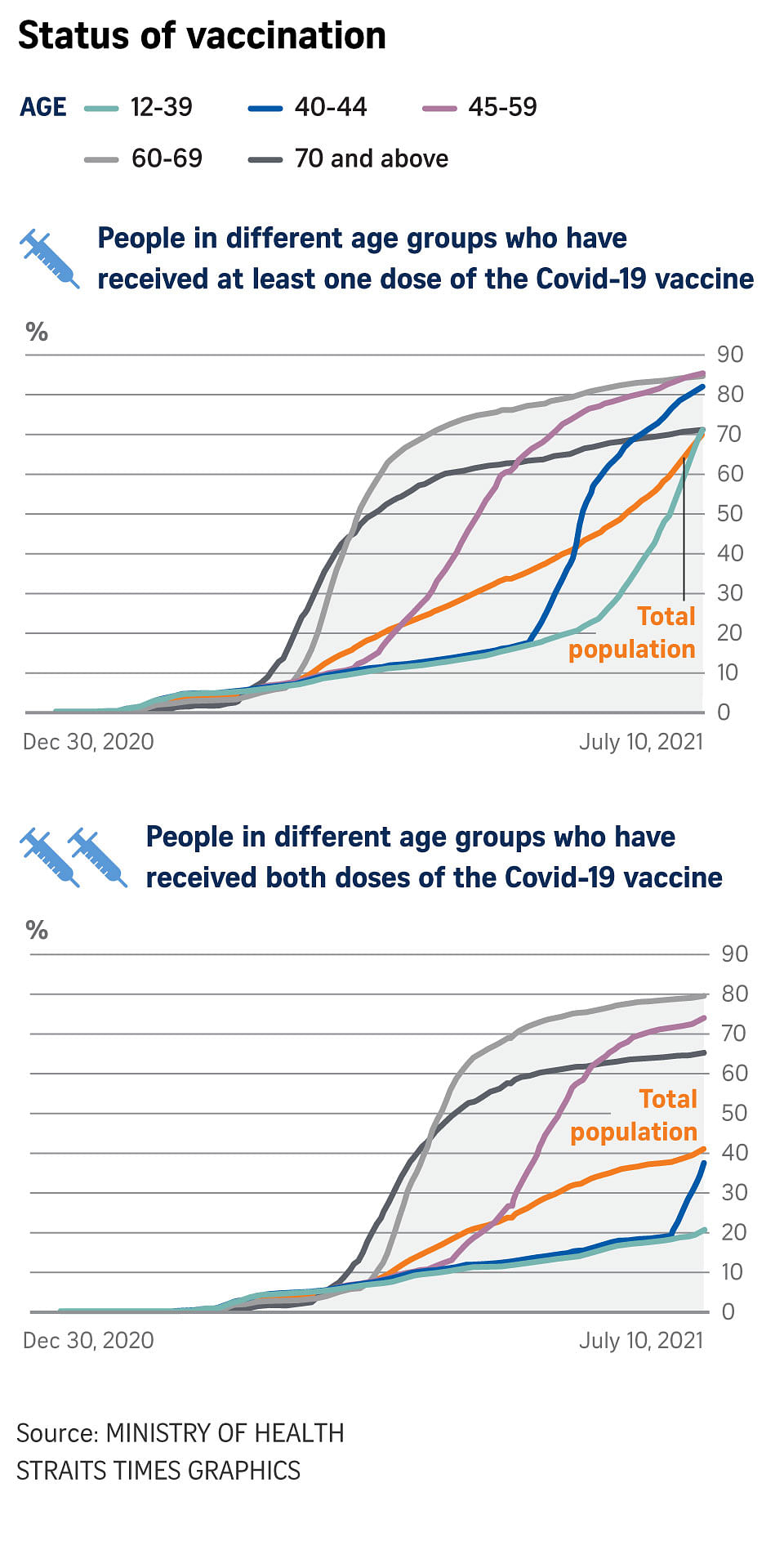'Hundreds' of unvaccinated elderly could die in the next year; family should help convince seniors to take jab: Experts
SINGAPORE – Hundreds of unvaccinated seniors could die in the next 12 months as Singapore loosens Covid-19 restrictions, warned Associate Professor Alex Cook, the vice-dean of research at the National University of Singapore’s (NUS) Saw Swee Hock School of Public Health.
Speaking to The Straits Times, Prof Cook explained that Singapore already sees hundreds of deaths from the flu every year.
“So having hundreds of deaths from Covid isn’t too dissimilar… It’s just that we have a much better vaccine for Covid than we have for the flu, so we have more opportunity to prevent those deaths,” he said.
He added that Singapore has kept its Covid-19 death rate low for the last 18 months by imposing restrictions on all age groups, primarily for the purpose of keeping the elderly safe.
“If we keep many of the measures in place indefinitely, like no more travel without two weeks of quarantine on either end, mask wearing forever… and so on, then yes, we can keep the numbers low indefinitely. But for how long? Until 2025? 2030? Obviously that would not be realistic,” he said.
Adding that there may be a rise in cases here once measures are relaxed, Prof Cook said that if this happens very few of those who are vaccinated will die.
“But if 20 per cent of the elderly decide not to be vaccinated, then that is the group in which the deaths will dominate when Covid spreads in the community. That’s why I think it’s so important to vaccinate as many elderly (as possible) in the next month,” he said.
Professor Dale Fisher from the Department of Medicine at the NUS Yong Loo Lin School of Medicine also said unvaccinated individuals are currently being protected by various restrictions.
“All these will lift in the upcoming months making the unvaccinated vulnerable to severe illness. (Vaccination) is really urgent now especially for the elderly,” he said.
Professor Paul Tambyah, senior consultant at the National University Hospital’s Division of Infectious Diseases, said: “Older people are at much higher risk of complications. Thus it makes (more) sense for them to be vaccinated compared with younger people.”
Similar sentiments were shared by Professor Josip Car, director of the Centre for Population Health Sciences at Nanyang Technological University’s Lee Kong Chian School of Medicine.
Currently, vaccination rates among those aged 70 and above appear to have hit a plateau at around 70 per cent.
Prof Cook said that ideally, this level should be 95 per cent or more.
“If we can bring down the proportion of unvaccinated from 30 per cent to 5 per cent, the number of deaths will roughly fall to a sixth,” he said.
Prof Fisher took a stronger stance. He warned: “It should not be acceptable for anyone over 70 to remain unvaccinated. They will almost certainly get Covid-19 just as they get a cold or flu as a matter of course. Except this is much more severe.”
Associate Professor Tan Ern Ser from the Department of Sociology at the NUS Faculty of Arts and Social Sciences said that while the initial take-up rate among seniors reflects the “enthusiasm of the early adopters”, those holding out could be doing so for a variety of reasons.
These include a lack of trust in vaccines, concern about side-effects, ignorance about the effects of the virus and a belief that they will not get infected.
Others may be holding out for religious reasons, or feel they are not concerned about the virus “at their age”, said Prof Tan.
Still others might live alone and lack the support to get to vaccinated, or may simply be procrastinating.
Prof Cook noted that some families may not feel it is necessary to vaccinate their elderly relatives because they do not go out much, and the rest of the family is vaccinated.
This is a “dangerous misunderstanding”, he said, as there is still a risk that vaccinated family members could bring the virus home and infect an unvaccinated senior.
Prof Tan said friends and family could help to nudge seniors to get their shots, or even personally take them to do so.
Volunteers from local social services agencies could visit the seniors without friends or family and do these instead.
Messaging on TV encouraging vaccination should continue, and “goodie bags” containing vouchers could be used to incentivise people to get their jabs, although Prof Tan cautioned that this may encourage a habit of expecting an incentive for doing the socially responsible thing.
Prof Car said the elderly have different motivations from the young for a multitude of reasons, including upbringing, shared generational attitudes and lived experiences.
“We do need to show them great respect – even if they decline vaccination and respectfully engage in dialogue about what might help them change their decision,” he said, adding that those engaging seniors could do so in a way that resonates with their desire to care for their health and stay out of hospitals.
They could also encourage seniors to be a role model for their fellow elderly, or to contribute their part to the national effort to beat the virus and lift restrictions.
Prof Car said: “It is critical to listen to (the seniors) carefully and address concerns with open discussion, even as we give an impartial presentation of the pros and cons of vaccination.”
Source: Read Full Article



